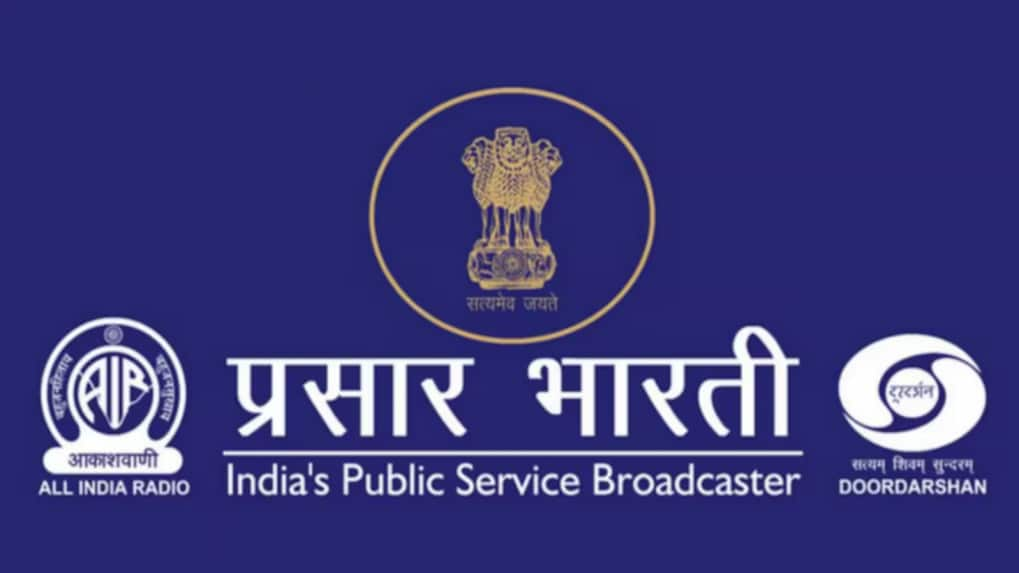How it Works
WPP, Havas, Omnicom: Are advertising’s biggest holdcos recasting agencies as AI Operating Systems?

Prasar Bharati, India’s public service broadcaster, has released its draft Content Syndication Policy 2025 and launched a consultation process with the media and entertainment industry. The proposed framework is aimed at monetizing Doordarshan and Akashvani’s extensive archives, live programming, and digital-first content while also expanding cultural outreach and maintaining the broadcaster’s public service mandate.
The draft policy states that it will cover content produced by Doordarshan and All India Radio, archived national and regional programming, live telecasts of government events, sports, and festivals, as well as digital-first content created for Prasar Bharati’s OTT platform. Commissioned and co-produced programming will also be included. According to the broadcaster, the goal is to create new revenue streams, enable strategic collaborations with domestic and international partners, and make Indian cultural and educational programming accessible to a broader audience worldwide.
To achieve this, Prasar Bharati has proposed a range of revenue models. These include flat fee licensing for time-bound or event-specific use, revenue-sharing arrangements based on advertising or subscription income, hybrid structures involving a minimum guarantee plus performance-linked revenue share, and barter or in-kind exchanges such as reciprocal content sharing or advertising slots. The draft also seeks industry input on preferred revenue splits, tiered pricing for different categories of content such as archival or premium material, and the possibility of dynamic pricing linked to viewership levels or seasonal demand.
The policy places a strong emphasis on rights management and compliance. Syndication rights will specify whether they are exclusive or non-exclusive, as well as the territorial and platform scope of use. All agreements will cover aspects such as content security through watermarking and digital rights management, clear branding and attribution rules, payment terms, audit and reporting requirements, and penalties for non-compliance. Unauthorized edits or remixing will not be permitted, and disputes will be governed under the Arbitration and Conciliation Act, 1996, with New Delhi as the legal jurisdiction.
International distribution is also a key component of the policy. Prasar Bharati has highlighted the potential of packaging regional-language and cultural content for global diaspora audiences, supported by monetization models such as ad-supported streaming with geo-targeted advertising. The draft also underscores the importance of strategic and non-monetary syndication, including carriage arrangements with public broadcasters overseas, co-branding opportunities, and integration of Prasar Bharati content into telecom bundles, set-top box applications, and smart television ecosystems.
The broadcaster has invited media houses, OTT platforms, content aggregators, direct-to-home operators, and other industry stakeholders to submit their feedback on the draft by September 21, 2025.
Inputs on monetization frameworks, licensing structures, technology-driven innovations such as AI-based advertising and blockchain-based royalty tracking, and compliance norms will play a significant role in shaping what Prasar Bharati describes as a “flexible, scalable, and industry-aligned” policy.
The draft also emphasizes innovation and future readiness. It leaves room for pilot collaborations with startups, research institutions, and technology platforms, thereby signaling Prasar Bharati’s openness to experimenting with new formats and business models. The policy will undergo a review every two years to take into account market dynamics, technological advancements, strategic objectives, and regulatory changes.
By opening up its archives and programming through structured syndication, Prasar Bharati hopes to strike a balance between fulfilling its cultural and public service mission and seizing commercial opportunities in India’s rapidly evolving media landscape.
From purpose-driven work and narrative-rich brand films to AI-enabled ideas and creator-led collaborations, the awards reflect the full spectrum of modern creativity.
Read MorePraveen Someshwar, Managing Director and CEO of Diageo India, joins the Grand Jury of the Storyboard18 Awards for Creativity, highlighting the awards’ focus on work that blends cultural relevance with strategic and commercial impact.